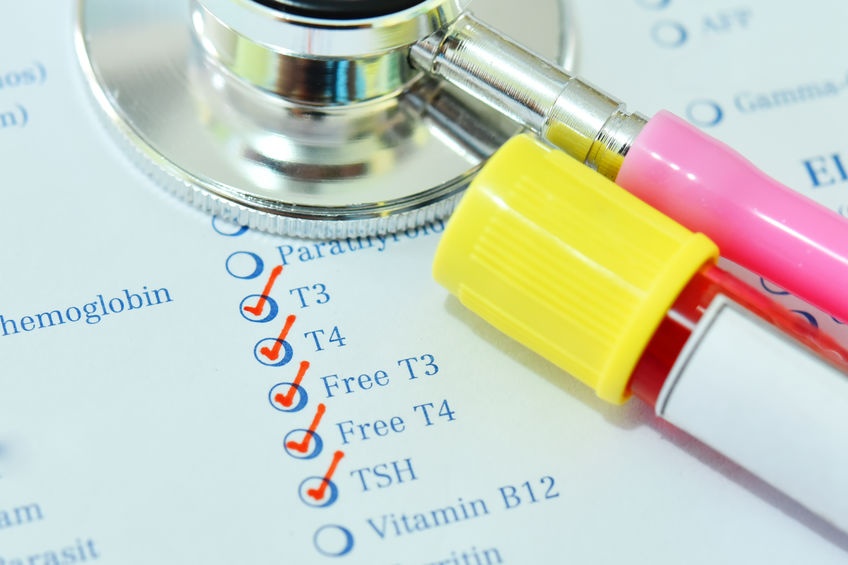General Health Tips & News
Hypothyroidism
By D.A. (staff writer) , published on November 04, 2020

Medicine Telehealth Health hypothyroidism thyroid
Hypothyroidism is an underactive thyroid gland. Hypothyroidism means that the thyroid gland can’t make enough thyroid hormone to keep the body running normally.
People are hypothyroid if they have too little thyroid hormone in the blood. Common causes are autoimmune disease, such as Hashimoto’s thyroiditis, surgical removal of the thyroid, and radiation treatment.
Symptoms
The signs and symptoms of hypothyroidism vary, depending on the severity of the hormone deficiency. Problems tend to develop slowly, often over a number of years.
At first, you may barely notice the symptoms of hypothyroidism, such as fatigue and weight gain. Or you may simply attribute them to getting older. But as your metabolism continues to slow, you may develop more-obvious problems.
Hypothyroidism signs and symptoms may include:
- Fatigue
- Increased sensitivity to cold
- Constipation
- Dry skin
- Weight gain
- Puffy face
- Hoarseness
- Muscle weakness
- Elevated blood cholesterol level
- Muscle aches, tenderness and stiffness
- Pain, stiffness or swelling in your joints
- Heavier than normal or irregular menstrual periods
- Thinning hair
- Slowed heart rate
- Depression
- Impaired memory
- Enlarged thyroid gland (goiter)
Hypothyroidism in infants
Although hypothyroidism most often affects middle-aged and older women, anyone can develop the condition, including infants. Initially, babies born without a thyroid gland or with a gland that doesn't work properly may have few signs and symptoms. When newborns do have problems with hypothyroidism, the problems may include:
Yellowing of the skin and whites of the eyes (jaundice). In most cases, this occurs when a baby's liver can't metabolize a substance called bilirubin, which normally forms when the body recycles old or damaged red blood cells.
- A large, protruding tongue.
- Difficulty breathing.
- Hoarse crying.
- An umbilical hernia.
As the disease progresses, infants are likely to have trouble feeding and may fail to grow and develop normally. They may also have:
- Constipation
- Poor muscle tone
- Excessive sleepiness
When hypothyroidism in infants isn't treated, even mild cases can lead to severe physical and mental retardation.
Hypothyroidism in children and teens
In general, children and teens who develop hypothyroidism have the same signs and symptoms as adults do, but they may also experience:
- Poor growth, resulting in short stature
- Delayed development of permanent teeth
- Delayed puberty
- Poor mental development
Potential Dangers of Having Hypothyroidism
Because the body is expecting a certain amount of thyroid hormone, the pituitary will make additional thyroid stimulating hormone (TSH) as a way to prompt the thyroid to produce more hormone.
This extra work at signaling the thyroid gland to keep producing TSH may cause it to become enlarged, leading to he formation of a goiter (termed a "compensatory goiter").
Left untreated, the symptoms of hypothyroidism will usually progress. Rarely, complications can result in severe life-threatening depression, heart failure, or coma.
Hypothyroidism can often be diagnosed with a simple blood test: the thyroid hormone panel. In some persons, however, it's not so simple and more detailed tests are needed. Most importantly, a good relationship with a good endocrinologist will almost surely be needed.
Hypothyroidism is completely treatable in many patients simply by taking a small pill once a day. However, this is a simplified statement, and it's not always so easy. There are several types of thyroid hormone preparations and one type of medicine will not be the best therapy for all patients.
References
Hypothyroidism. American Thyroid Association. Accessed October 30, 2020. https://www.thyroid.org/hypothyroidism/
Hypothyroidism - Symptoms and causes. Mayo Clinic. Accessed October 30, 2020. https://www.mayoclinic.org/diseases-conditions/hypothyroidism/symptoms-causes/syc-20350284
Hypothyroidism: Causes, Symptoms, Treatment, Diet & More. Healthline. Published April 3, 2017. Accessed October 30, 2020. https://www.healthline.com/health/hypothyroidism/symptoms-treatments-more
Find articles related to: Medicine Telehealth Health hypothyroidism thyroid
More articles about General Health Tips & News
Back to the Health Tips Index




